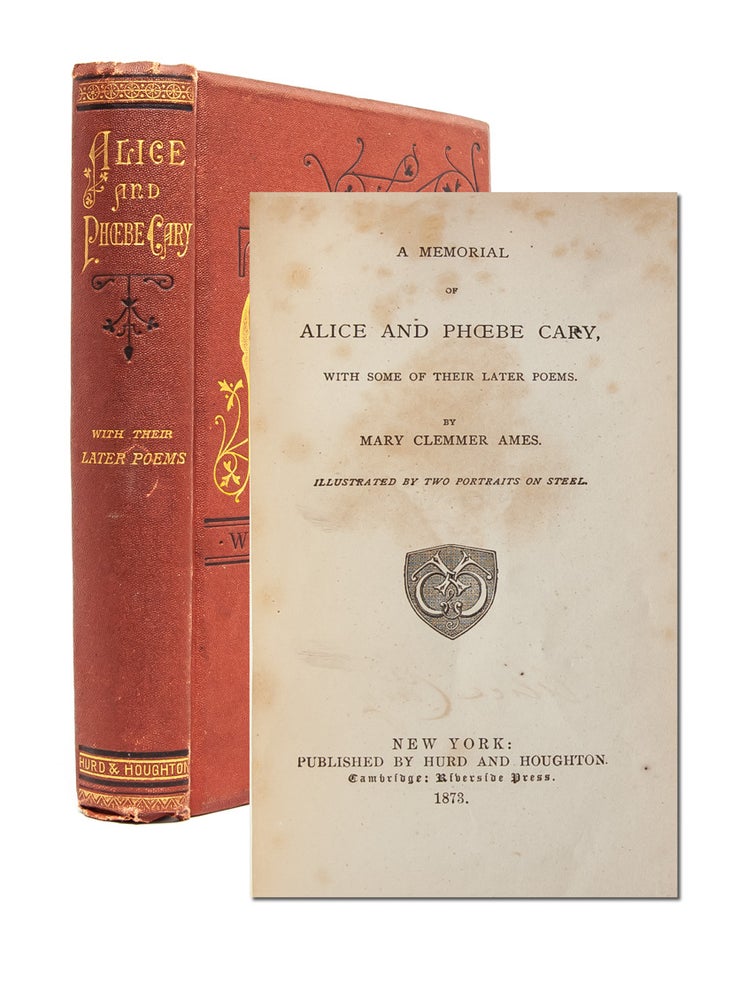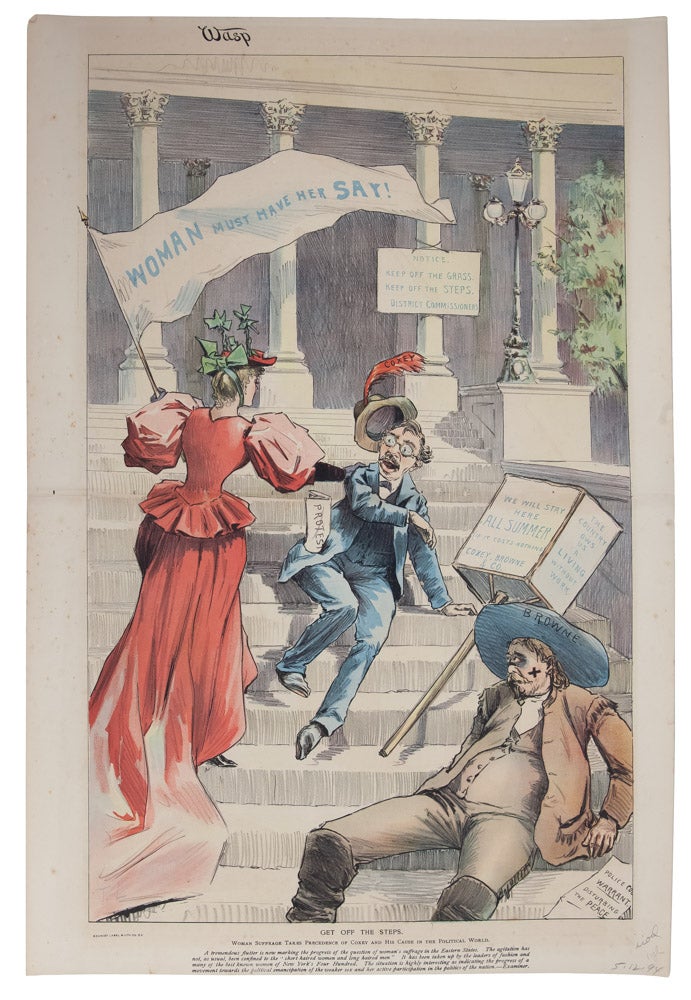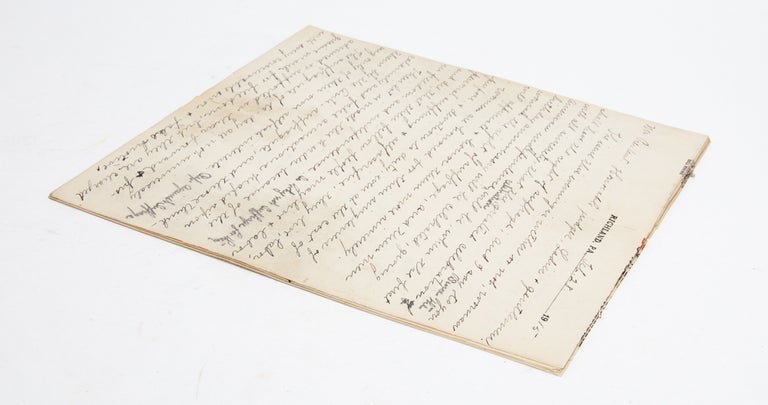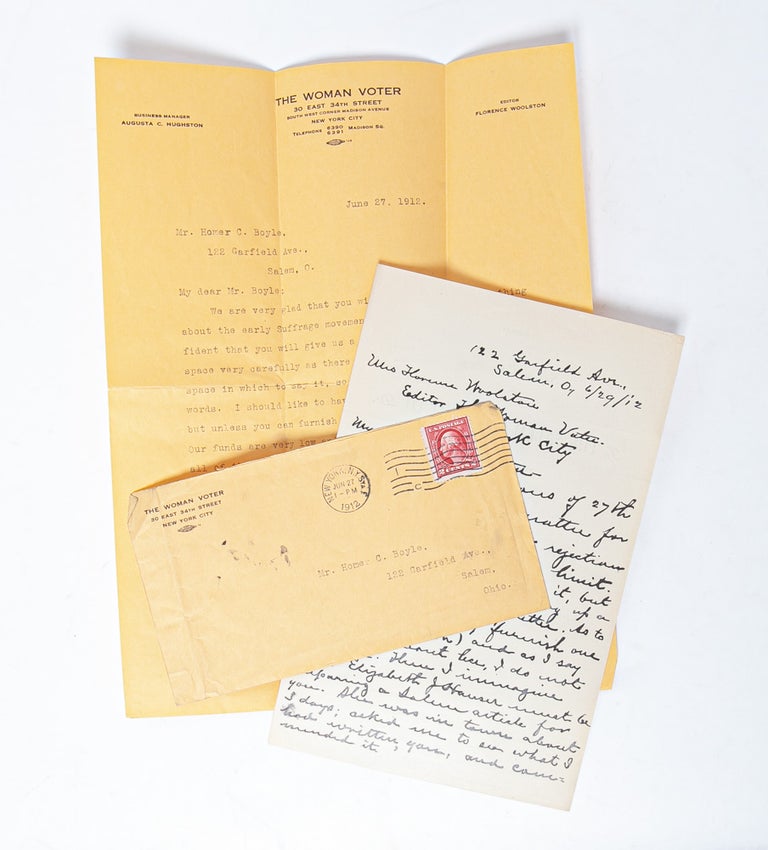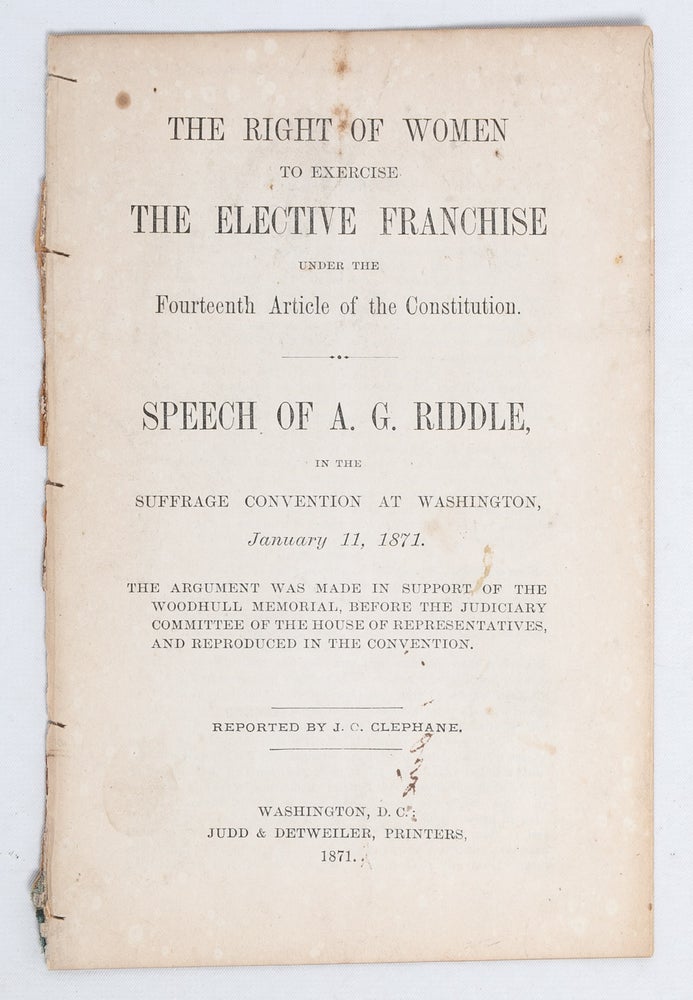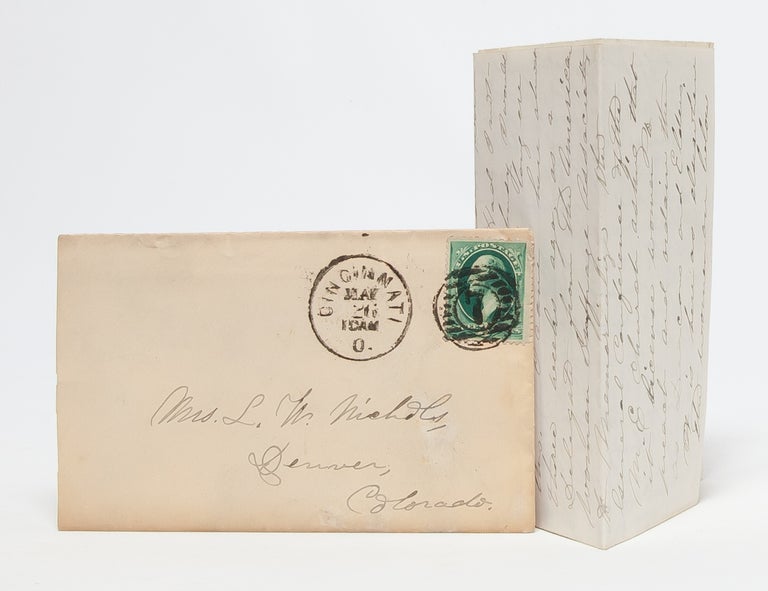Equal Rights for Women, A Speech by George William Curtis [with] New England Woman Suffrage Association Constitution
Boston: The Office of the Woman's Journal, [1871].
![(Item #3401) Equal Rights for Women, A Speech by George William Curtis [with] New England Woman Suffrage Association Constitution. Women's Suffrage, American Woman Suffrage Association.](https://whitmorerarebooks.cdn.bibliopolis.com/pictures/3401.jpg?auto=webp&v=1591634834)
![(Item #3401) Equal Rights for Women, A Speech by George William Curtis [with] New England Woman Suffrage Association Constitution. Women's Suffrage, American Woman Suffrage Association.](https://whitmorerarebooks.cdn.bibliopolis.com/pictures/3401.jpg?auto=webp&v=1591634834)
Equal Rights for Women, A Speech by George William Curtis [with] New England Woman Suffrage Association Constitution
Boston: The Office of the Woman's Journal, [1871]. First thus. No. 2 of the Woman's Suffrage Tracts printed by The Woman's Journal of the American Woman Suffrage Association. Original printed self-wraps stitched at spine. Collates 24, [4]: complete, including the unpaginated Constitution, list of officers, and ad for the Woman's Journal. Light soiling to wraps; small closed tear to upper corner of pages 9-10 not affecting text. In all, a lovely survivor of an important work, marking one wing of the women's movement branching off on its own and developing its distinct platform for promoting equality. While the American Equal Rights Association and the NWSA's periodical The Revolution printed earlier versions of this tract (1867 and 1868 respectively), both of which are listed on OCLC, the 1871 Woman's Suffrage Tract printing is the only one to contain rear material on the newly founded organization's Constitution, officers, and journal. The only copy on the market, this edition was not located in OCLC.
At the 1867 Constitutional Convention of New York, civil rights activist George William Curtis delivered a speech connecting women's rights to the Declaration of Independence, and questioning contemporary legal readings of the word "man" which he asserts "undoubtedly includes woman as much as the word mankind." Arguing against archaic systems in which "woman is absorbed into man as a social inferior and subordinate," Curtis urges "the enfranchisement of women on the ground that whatever political rights men have, women have equally" and are only denied them. Unsurprisingly, a number of organizations gravitated toward Curtis' message, reproducing it under their own imprints. And so it was with the American Woman Suffrage Association.
Having split in 1869 from the National Woman Suffrage Association led by Elizabeth Cady Stanton and Susan B. Anthony, the American Woman Suffrage Association narrowed its focus solely to voting rights under the guidance of Julia Ward Howe, Lucy Stone, and Mary Livermore. Whereas the NWSA sought equality for women in multiple spaces (education, employment, marriage, suffrage), the AWSA opted solely to emphasize enfranchisement of women. The vote, the AWSA leaders asserted, could only be accomplished with single-minded commitment; and only its achievement would open the door to those other spaces. Just as the NWSA had a voice via its newspaper The Revolution, the AWSA founded The Woman's Journal in 1870. And, though the Revolution printed its version of Curtis' speech in 1868, the Woman's Journal opted to pull Curtis' into their own orbit, placing their mark on his words by attaching them to the Constitution of a new regional branch and with advertisements for their new periodical. Notably, the rear "Opinion of the Press" section features Curtis' own assessment of the journal as a cornerstone for readers "who wish to keep the issue clear from entangling with other reforms" and as "indispensible to those who would truly understand the character of the movement and the measure of its progress." An important legal argument, here serving as a key example of effective branding.
Krichmar 262 (for first appearance of 1867). Near Fine (Item #3401)

![Equal Rights for Women, A Speech by George William Curtis [with] New England Woman Suffrage Association Constitution](https://whitmorerarebooks.cdn.bibliopolis.com/pictures/3401_2.jpg?width=768&height=1000&fit=bounds&auto=webp&v=1591634834)
![Equal Rights for Women, A Speech by George William Curtis [with] New England Woman Suffrage Association Constitution](https://whitmorerarebooks.cdn.bibliopolis.com/pictures/3401_3.jpg?width=768&height=1000&fit=bounds&auto=webp&v=1591634834)
![Equal Rights for Women, A Speech by George William Curtis [with] New England Woman Suffrage Association Constitution](https://whitmorerarebooks.cdn.bibliopolis.com/pictures/3401_4.jpg?width=768&height=1000&fit=bounds&auto=webp&v=1591634834)
![Equal Rights for Women, A Speech by George William Curtis [with] New England Woman Suffrage Association Constitution](https://whitmorerarebooks.cdn.bibliopolis.com/pictures/3401_5.jpg?width=768&height=1000&fit=bounds&auto=webp&v=1591634834)
![Equal Rights for Women, A Speech by George William Curtis [with] New England Woman Suffrage Association Constitution](https://whitmorerarebooks.cdn.bibliopolis.com/pictures/3401_6.jpg?width=768&height=1000&fit=bounds&auto=webp&v=1591634834)
